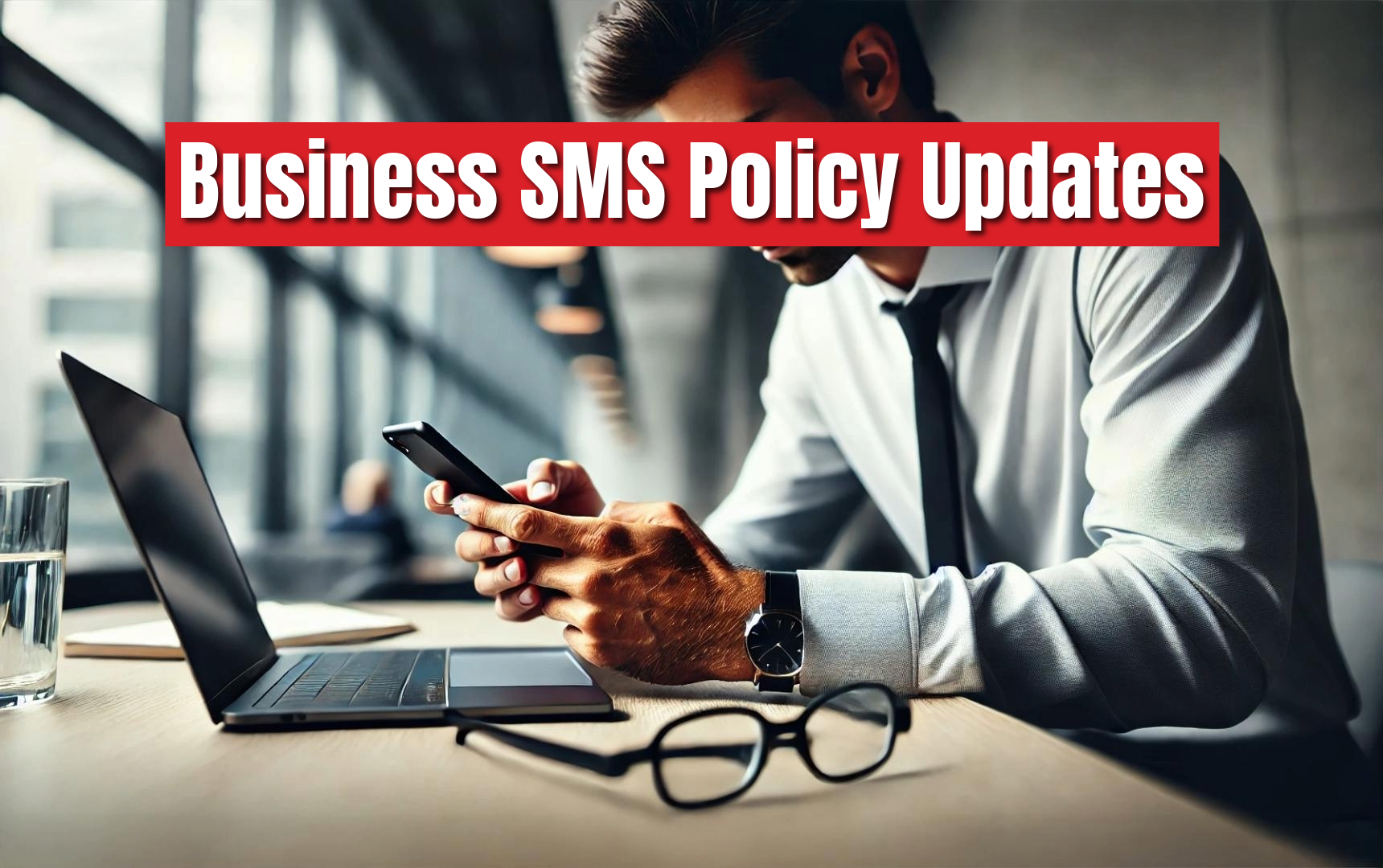How Cost-Effective Are Business VoIP Mobile Apps for Businesses?
As businesses adapt to a mobile-first, hybrid-work era, communication tools have become central to efficiency, collaboration, and cost management. Business mobile VoIP apps are increasingly the go-to solution, offering modern alternatives to outdated systems. But how cost-effective are they, and can they truly save your business money?
At TeleCloud, we understand the challenges businesses face with outdated communication tools—and we know that not all mobile apps address these effectively. Some apps struggle with limited system integration, making tasks like accessing voicemail or managing SMS communication unnecessarily difficult. That’s why choosing the right app is critical for ensuring seamless, efficient communication.
In this article, we’ll explore what Mobile VoIP apps are, how they save costs, their long-term value, and how to calculate their ROI. Let’s dive in.
Ready to cut costs and modernize your mobile communication? Talk to a communication expert to learn how Mobile VoIP apps can save you money and enhance productivity.
What Is a Business VoIP Mobile App?
Business VoIP (Voice over Internet Protocol) mobile apps are smartphone and tablet applications that extend the capabilities of a VoIP phone system to mobile devices. These apps enable seamless communication from virtually anywhere, combining the functionality of traditional office phone systems with the mobility of modern technology.
VoIP mobile apps allow businesses to make high-quality calls over the internet while integrating features like messaging, voicemail, and file sharing—all within a unified, user-friendly platform.
Key Features of VoIP Mobile Apps
Mobile phone apps offer a wide range of tools to enhance communication and collaboration, including:
- Voice Calling: High-quality phone calls over the internet with advanced call routing.
- Instant Messaging: Real-time chat for team collaboration.
- SMS Integration: Business texting capabilities to improve customer engagement.
- File Sharing: Securely share documents, images, and files in-app.
- Visual Voicemail: Quickly review and manage voicemail messages with transcription.
- Directories and Call Management: Access company directories, transfer calls, and set call handling rules effortlessly.
- Easy Access: Log in effortlessly with a QR code—no IT headaches.
Why Businesses Are Adopting VoIP Mobile Apps
Businesses are turning to communication mobile apps for their:
- Flexibility: Seamlessly support remote and hybrid workforces.
- Scalability: Easily add or remove users as the business grows or changes.
- Cost Efficiency: Replace expensive hardware with affordable subscription models.
What Are the Cost Challenges of Traditional Communication Systems?
Hardware and Infrastructure Costs
Legacy PBX systems require costly investments in physical equipment like desk phones, servers, and cables. These systems also involve:
- Expensive installations.
- Regular maintenance and repair costs.
- Limited scalability without significant upgrades.
High Overhead for On-Premises Systems
Maintaining traditional systems demands dedicated IT staff to manage:
- Regular updates and patches.
- Troubleshooting and repairs.
- System expansions or integrations.
These staffing and maintenance costs quickly add up, especially for growing businesses.
Lack of Flexibility Leading to Inefficiencies
Traditional systems struggle to support remote or hybrid work environments, leading to inefficiencies like:
- Limited call forwarding or mobile capabilities.
- Reliance on patchwork solutions that increase IT complexity.
- Higher costs when scaling up or down to meet business demands.
How Do Business VoIP Mobile Apps Save Businesses Money?
Lower Infrastructure and Maintenance Costs
With mobile apps, there’s no need for physical infrastructure. Communication is hosted in the cloud, which can save you up to 70% by eliminating:
- Hardware installations and upgrades.
- Desk phone systems and office space dedicated to bulky equipment.
- On-premises server maintenance
Reduced IT Support and Staffing Needs
Mobile apps are managed by the service provider, simplifying updates and maintenance. This reduces the need for:
- In-house IT staff to manage communication tools.
- Downtime caused by system failures or delays in troubleshooting.
Pay-Per-User Model
VoIP packages, which should include the mobile app operate on a subscription-based pricing model, ensuring cost predictability. Businesses only pay for active users, allowing for:
- Easy scaling up or down based on team size.
- Cost-efficient onboarding for new employees or temporary teams.
Integration with Existing Tools
Modern apps may integrate seamlessly with tools like Microsoft Teams, CRMs, and project management platforms. This reduces the need for redundant software, lowering overall communication tool expenses.
What Are the Long-Term Cost Benefits of Business VoIP Mobile Apps?
Improved Productivity and Time Savings
Mobile apps consolidate multiple communication tools into one platform, saving time and improving efficiency. Employees can:
- Access voicemail, SMS, and directories in a single app.
- Manage calls and messages on the go.
- Reduce downtime and missed connections.
Supporting Remote and Hybrid Workforces
With mobile apps, businesses no longer need costly physical office systems to stay connected. Remote workers enjoy the same communication features as in-office employees, promoting:
- Increased flexibility.
- Lower real estate costs for office spaces.
Lower Downtime and Business Disruptions
Cloud-based systems offer high uptime guarantees, minimizing disruptions caused by outages or technical failures common in traditional systems.
Enhanced Mobility Leading to Business Agility
Mobile apps empower employees to:
- Work from anywhere with full access to communication tools.
- Respond faster to clients and colleagues.
- Adapt to new business challenges without needing additional tools.
How Do You Calculate the ROI of Business VoIP Mobile Apps?
Key Metrics to Measure ROI
When evaluating mobile apps, consider:
- Cost Savings: Compare expenses for traditional hardware and maintenance versus subscription costs. Factor in the cost of customer retention when employees use personal numbers instead of business lines. Using business lines through a mobile app ensures customer relationships stay tied to the company, reducing potential attrition.
- Productivity Gains: Measure time saved by consolidating communication tools into a single platform, enabling faster responses to clients and improved collaboration. Remote and mobile workers benefit from seamless access to business communication, reducing downtime and increasing efficiency.
- IT Budget Reductions: Track decreased costs in IT staffing, maintenance, and troubleshooting with the streamlined, cloud-based management of mobile apps.
Comparing Traditional Systems vs. VoIP Mobile Apps
A Total Cost of Ownership (TCO) analysis reveals significant savings with mobile apps. For example, average rates may look something like:
- Traditional PBX system for 50 users at $1,000 per user: $50,000 upfront + $3,000/year maintenance.
- Mobile App: Typically mobile VoIP apps are included in your VoIP bundle. So you can think if it as an included feature or take the total cost of $1,000/month subscription at $20 per user for 50 users = $12,000/year with no hardware costs.
From what we have seen: A mid-sized sales team adopting a mobile app could save 10 hours per week by managing calls and SMS in one app. With the reallocated time, this could result in something like a 15% increase in client response rates and faster deal closures.
Common Misconceptions About Mobile Communication
1. Complexity
Transitioning to mobile apps is far simpler than early PBX systems. Modern solutions require no extensive IT involvement—just download the app, scan a QR code, and get started.
2. Internet Dependency
While mobile apps rely on stable internet connections, advancements like 5G and LTE ensure high-quality calls and low latency.
3. Concerns About Cost
Unlike traditional systems with licensing fees, mobile apps are included in most VoIP plans, making them a cost-effective choice.
Are Mobile VoIP Apps Right for Your Business?
Business VoIP phone mobile apps provide businesses with a powerful, cost-effective alternative to traditional communication tools. By eliminating the need for physical infrastructure, offering subscription-based pricing, and enhancing communication features, these apps are a must-have for any team looking to improve flexibility and efficiency.
If your business is still tied to outdated systems, it’s time to explore the possibilities of mobile apps. Tools like TeleCloud Pro make it easy to upgrade your communication system without the headaches of traditional setups.
Ready to see how mobile communication can transform your team’s communication? Reach out to learn more about TeleCloud’s solutions and start saving today!


